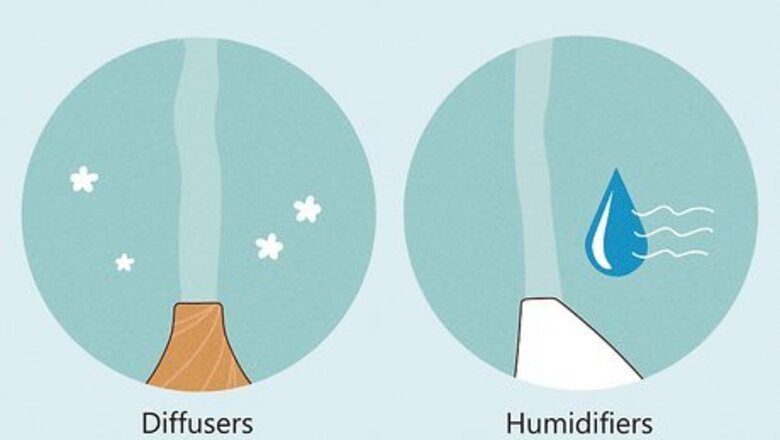
views
- Diffusers disperse fragrance into the air while humidifiers add moisture, raising the humidity in a room.
- Diffusers use essential oils, which might be able to treat stress, poor sleep, and some infections.
- Humidifiers add moisture back into the air, which can help relieve congestion, sore throats, and dry skin.
What’s the difference between diffusers and humidifiers?
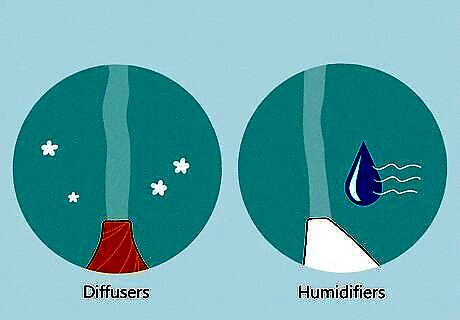
Diffusers add fragrance to the air while humidifiers add moisture. It can be easy to mix these devices up because they both use water to work. However, their purposes are completely different! Most diffusers use essential oils and disperse their aromas through the air with the help of water droplets. On the other hand, humidifiers just spread a mist of water through the air to increase the humidity in the room. Diffusers are typically smaller than humidifiers, with most having basins that can hold 1 to 2 cups (200-500 mL) of water. So, diffusers usually work the best in small spaces. Compared to diffusers, humidifiers are typically larger. Their water basins usually hold at least 1 gallon (3 L) of water.
Diffuser Purpose and Benefits
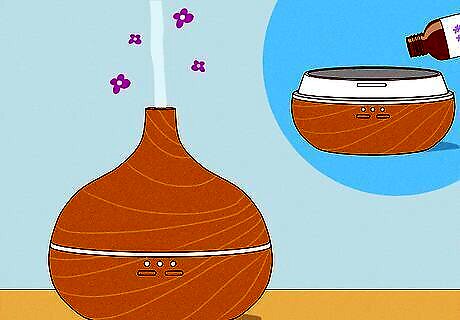
Diffusers are devices that emit fragrances in the air. Most diffusers have a tray that you pour water into and a few drops of your favorite essential oil. When you turn the diffuser on, it moves the water around quickly, turning it into a mist. The diffuser then sprays the scented mist into your room.
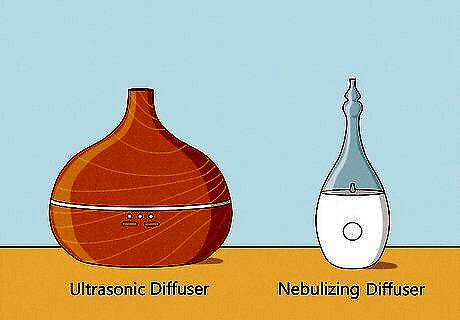
Diffusers come in different types that work in different ways. While all diffusers add clean and relaxing fragrances to your home, some emit more powerful scents than others. Knowing what each one does can help you purchase a diffuser that works for your needs. Ultrasonic diffuser: this is the most common type of diffuser. It vibrates quickly to disperse scented water vapor into the air Steam diffusers: these also use water, but heat it up to spread the essential oils instead of vibrating. Nebulizing diffusers: unlike other types, these don’t use water. Instead, they atomize essential oils, turning them into vapor. Because there’s no water, the aroma is usually stronger than from other diffusers.
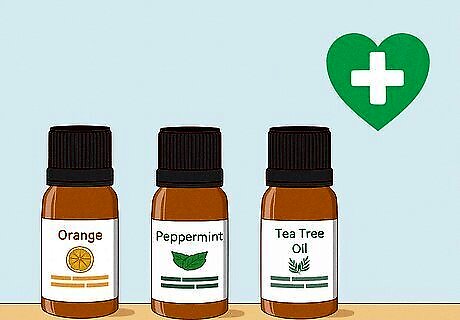
The essential oils used in diffusers might have healing properties. While spreading relaxing scents is a benefit on its own, diffusers are often used for aromatherapy. This is the process of using scents to treat common conditions. For example, orange essential oil can be used to reduce stress and anxiety, while tea tree oil might be able to treat fungal infections like athlete’s foot. Lavender, peppermint, and lemon oil are some great scents that can reduce stress, improve your mood, and smell great to boot. When using a diffuser for aromatherapy, blend your essential oils to create a wonderful aroma and treatment that works for you. If you’re using your diffuser for aromatherapy, buy essential oils that are sold for aromatherapy use. They usually provide cleaner scents.
Humidifier Purpose and Benefits
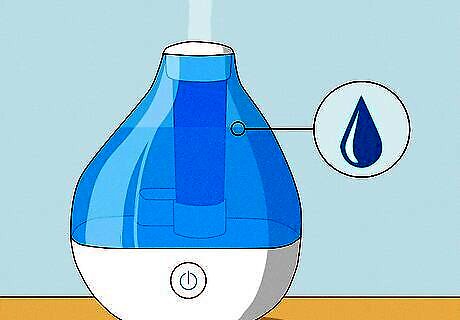
Humidifiers work to increase the humidity in a room. There’s nothing worse than the air in your house drying out with the change of the seasons. Luckily, humidifiers exist to add moisture back into the air. Most humidifiers work similarly to diffusers, where you add water to a tray or basin. When you turn the humidifier on, it vibrates quickly to release droplets of air into the room as mist.
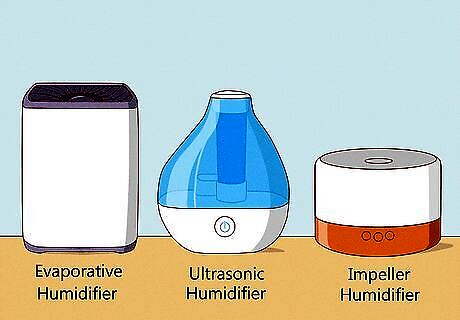
While all humidifiers add moisture to a room, they come in different types. Some humidifiers add warm air to your home, while others disperse a cool mist. However, there’s no best humidifier to buy. Just choose the one that fits the size of your home and your moisture needs. Evaporative humidifier: these suck in dry air and blow it through a moisture wick or filter, releasing moistened air back into the room. Ultrasonic humidifier: one of the more common humidifiers, these vibrate at an ultrasonic frequency to turn water into a mist that’s released into the air. Impeller humidifier: similar to ultrasonic humidifiers, these use a rotating disk to vaporize water and turn it into a cool mist. Central humidifier: some homes come with these humidifiers, which are installed along with your home’s air conditioning system. This allows you to control the humidity in every room. Vaporizer: these work similarly to humidifiers and add moisture to your home. They heat up the water in their basin and disperse it as steam.
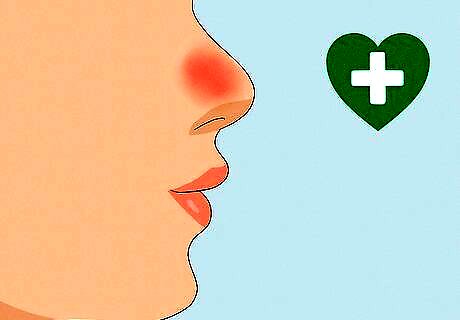
Using a humidifier can relieve stubborn runny noses and congestion. Dry air can dry out your nasal passages and throat, leaving you stuffy and sore. Because humidifiers and vaporizers add moisture back into the air, they help to give your body much needed moisture too. They can even relieve your dry skin and lips as well! Experts recommend keeping your home between 30-50% humidity. While too little humidity can dry you out, too much can invite unwanted bacteria in your home. When using a humidifier, check the moisture levels in your home regularly. A simple hygrometer will do the trick. Clean out your humidifier regularly, too. To make sure you’re receiving clean air, fill your humidifier with fresh water each day and clean the basin and filters every few days. About once a month, fully replace the filters.
Should I buy a diffuser or a humidifier?
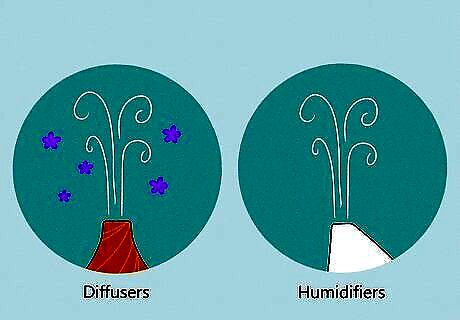
If you want clean scents, buy a diffuser; for moist air, buy a humidifier. A diffuser is your best bet if you’re looking for sweet, citrusy, or calming aromas to fill up your house. They are an especially great choice if you want to get into aromatherapy. But, if you just need to add back some moisture to your home, a humidifier is what you’re after. Unfortunately, you can’t add essential oils to a regular humidifier. However, some humidifiers come with a tray specifically for essential oils. That way, you add fragrance and moisture to your home simultaneously. Because diffusers are so small, the amount of water vapor they emit isn’t enough to raise the humidity. If you want to increase the moisture in your house, humidifiers are your best bet.




















Comments
0 comment